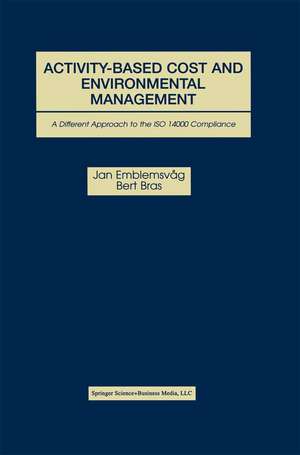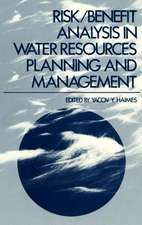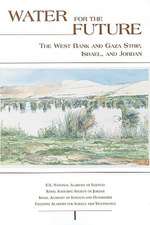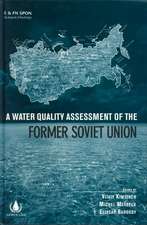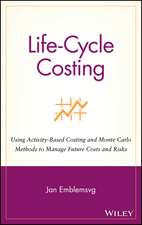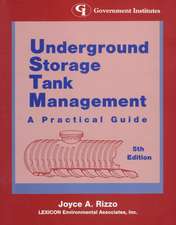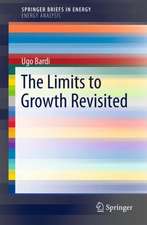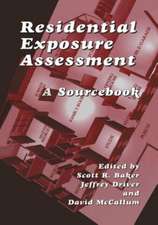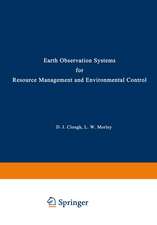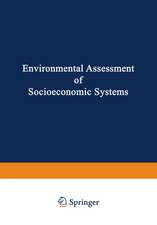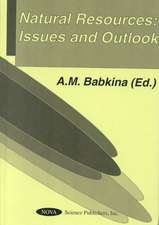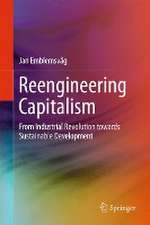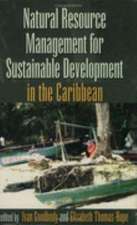Activity-Based Cost and Environmental Management: A Different Approach to ISO 14000 Compliance
Autor Jan Emblemsvåg, Bert Brasen Limba Engleză Paperback – noi 2012
Activity-Based Cost And Environmental Management: A Different Approach to the ISO 14000 Compliance demonstrates how environmental assessment and management can be performed based upon familiar principles: cost accounting and cost management. Specifically, this book describes how the well-established Activity-Based Costing and Management principles can be extended with non-monetary environmental dimensions. The result is a single, integrated framework called Activity-Based Cost and Environmental Management that provides the tools and abilities to do both environmental management and cost management in an integrated manner and according to modern management principles. This integration of economic and environmental dimensions based upon familiar cost accounting and management principles makes it easier for decision-makers to not only include the environment in their decision-making, but also to identify, rank and prioritize opportunities for win-win situations where competitiveness is increased and environmental impact reduced at the same time.
In this book, the basic concepts of Activity-Based Cost and Environmental Management are described, as well as how to make your own integrated Activity-Based Cost and Environmental Management implementations and how to get the most out of them using uncertainty distributions, Monte Carlo simulations, and sensitivity charts. Among others, the book includes chapters on environmental management and Activity-Based Costing, as well as several real-life case studies from companies for which the authors implemented Activity-Based Cost and Environmental Management systems.
| Toate formatele și edițiile | Preț | Express |
|---|---|---|
| Paperback (1) | 946.72 lei 6-8 săpt. | |
| Springer Us – noi 2012 | 946.72 lei 6-8 săpt. | |
| Hardback (1) | 952.89 lei 6-8 săpt. | |
| Springer Us – 30 noi 2000 | 952.89 lei 6-8 săpt. |
Preț: 946.72 lei
Preț vechi: 1154.54 lei
-18% Nou
Puncte Express: 1420
Preț estimativ în valută:
181.16€ • 189.53$ • 150.49£
181.16€ • 189.53$ • 150.49£
Carte tipărită la comandă
Livrare economică 02-16 aprilie
Preluare comenzi: 021 569.72.76
Specificații
ISBN-13: 9781461346432
ISBN-10: 1461346436
Pagini: 317
Ilustrații: XXI, 317 p.
Dimensiuni: 155 x 235 x 18 mm
Greutate: 0.48 kg
Ediția:Softcover reprint of the original 1st ed. 2001
Editura: Springer Us
Colecția Springer
Locul publicării:New York, NY, United States
ISBN-10: 1461346436
Pagini: 317
Ilustrații: XXI, 317 p.
Dimensiuni: 155 x 235 x 18 mm
Greutate: 0.48 kg
Ediția:Softcover reprint of the original 1st ed. 2001
Editura: Springer Us
Colecția Springer
Locul publicării:New York, NY, United States
Public țintă
ResearchCuprins
1 — Introduction.- 1. The Environment and Mankind — What’s the Problem?.- 2. The Economy and The Environment — What’s the Problem?.- 3. The Environment — Why should Business Care?.- 4. What’s the Goal?.- 5. How do we get there?.- 6. Re-Linking The Environment, Mankind, and the Economy — Our Approach.- 7. The Unique Features as we see them.- 8. Outline of this Book.- 2 — Environmental Management and Assessment.- 1. A Classification of Environmental Impact Reduction Approaches.- 2. ISO 14000 Environmental Management Standards.- 3 Life-Cycle Assessment.- 4. Bringing Economic Aspects into Environmental Management.- 5. Measuring Environmental Impact.- 6. Measuring Impact Using the Waste Index.- 7. What is Next?.- 3 — Activity-Based Costing.- 1. The ABC Concept.- 2. From ABC to ABM.- 3 Implementing ABC — What can go Wrong.- 4 ABC Adoption and Implementation.- 5. What is Next?.- 4 — Activity-Based Cost And Environmental Management.- 1. Expanding ABC Into the Environmental Domai.- 2. Developing Activity-Based Cost, Energy, and Waste Models — Specific Steps.- 3. Issues Related to Resource Definition and Quantification.- 4. More on Uncertainty Modeling and Simulation.- 5. Some More on Model Quality.- 6. What is Next?.- 5 — The Wagonho! Case Study.- 1. description Of Wagonho!.- 2. Developing an Activity-Based Cost, Energy and Waste model for WagonHo!.- 3. Using the model.- 4. In Closing.- 5. Acknowledgments.- 6 — The Farstad Shipping Case Study.- 1. History of this Case Study.- 2. Supply Vessel Terminology.- 3. Developing the Activity-Based Cost, Energy and Waste Model for Farstad.- 4. Interpretation &discussion of Results.- 5. Analysis of Biological Diversity Degradation and Human Health Risks.- 6. Activity-Based Mass Assessments.- 7.Critical Evaluation and Closure.- 8. What is Next?.- 9. Acknowledgments.- 7 — The Interface Case Study.- 1. Purpose of This Case Study.- 2. Description of Interface.- 3. Developing an Activity-Based Energy and Waste model for Interface.- 4. Results for Interface Flooring Systems.- 5. Results in Relation to the PLETSUS Program.- 6. What can we learn from the Results?.- 7. InClosing.- 8. Acknowledgments.- 8 — The Westnofa Industrier Case Study.- 1. Description of Westnofa Industrier.- 2. Developing an Activity-Based Energy and Waste model for Westnofa.- 3. Results for Westnofa Industrier.- 4. What can we learn from this Case?.- 5. The Effect on Westnofa.- 6. In Closing.- 7. Acknowledgments.- 9 — Closure.- 1. Activity-Based Cost and Environmental Management — Cornerstones Revisited.- 2. Activity-Based Cost and Environmental Management in Perspective.- 3. Activity-Based Cost and Environmental Management and Industry.- 4. The Benefits of Activity-Based Cost and Environmental Management.- 5. Change Management and Human Behavior.- 6. What could be Improved?.- 7. Closing Words.- References.- Appendix A.
